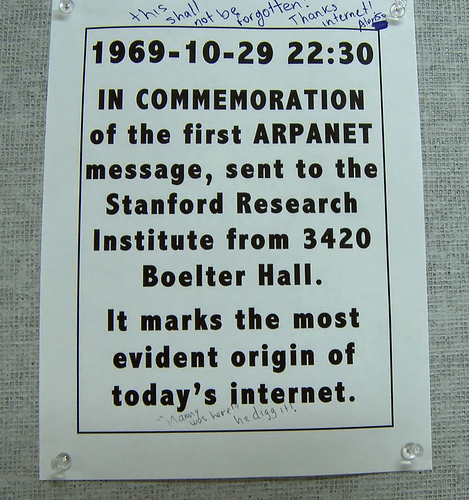Comcast Strikes a Blow Against Net Neutrality

WASHINGTON A federal court today said the FCC did not have the authority to regulate network management. The U.S. Court of Appeals for the District of Columbia ruled 3-0 in favor of Comcast’s challenge of an FCC order prohibiting it from blocking high bitrate traffic. Comcast was discovered throttling BitTorrent peer-to-peer traffic in 2007. Two consumer lobbies in D.C. filed complaints with the FCC, which ultimately forced Comcast to open its tubes.
The issue goes to Network Neutrality, a controversial policy dictating open, unhindered access to content via broadband networks. Owners of those networks, including Comcast, argue that high-bandwidth users should either be charged more or throttled down. Proponents of Network Neutrality--namely, users--argue that doing so gives the likes of Comcast too much power over Internet access. The absence of Network Neutrality rules has cost and throttling implications for any sort of video-heavy site, from YouTube to Hulu.com to local TV stations to live streamed sporting events.
The FCC last year started codifying Network Neutrality rules prohibiting Internet service providers from controlling traffic. The commission voted 5-0 to launch a rulemaking intended to establish legal parameters for ISPs. No final rules have been set, however, so the FCC has time and now, more guidance from today’s court decision, on specifics likely to endure legal scrutiny.
The court essentially said the FCC didn’t demonstrate legal precedent to exercise Title 1 authority over Comcast’s network management practices. Title 1 refers to a classification in the Communications Act applied to interstate wire and radio frequency communications. It gives the FCC authority to create rules “reasonably ancillary to the effective performance of the commission’s various responsibilities.”
The three-judge panel said it failed to do so.
“It relies principally on several Congressional statements of policy, but under Supreme Court and D.C. Circuit case law statements of policy, by themselves, do not create ‘statutorily mandated responsibilities.’ The Commission also relies on various provisions of the Communications Act that do create such responsibilities, but for a variety of substantive and procedural reasons those provisions cannot support its exercise of ancillary authority over Comcast’s network management practices. We therefore grant Comcast’s petition for review and vacate the challenged order.”
The FCC can appeal to the Supreme Court or seek broader authority from Congress. It could also move to reclassify broadband services under Title 2 common carrier regulations, which requires those carriers to provide service free of “unjust or unreasonable discrimination in charges, practices, classifications, regulations, facilities, or services.”
The commission didn’t immediately tip its hand, but rather issued the following generic statement:
“The FCC is firmly committed to promoting an open Internet and to policies that will bring the enormous benefits of broadband to all Americans. It will rest these policies -- all of which will be designed to foster innovation and investment while protecting and empowering consumers -- on a solid legal foundation.
“Today’s court decision invalidated the prior commission’s approach to preserving an open Internet. But the court in no way disagreed with the importance of preserving a free and open Internet; nor did it close the door to other methods for achieving this important end.”
Public Knowledge, one of the original complainants, strongly urged the FCC to reclassify broadband service as Title 2:
“The FCC should immediately start a proceeding bringing Internet access service back under some common carrier regulation similar to that used for decades. Some parts of the Communications Act, which prohibit unjust and unreasonable discrimination, could be applied here.”
Comcast Executive Vice President David Cohen stated the cable operator’s position on Network Neutrality back in January, as the company navigated regulatory hurdles in its majority acquisition of NBC Universal.
“We support the chairman’s commitment to an ‘open, transparent, fact-based and data-driven’ rulemaking proceeding on this topic,” Cohen wrote on Comcast’s blog. “And while... we continue to question whether the record will show a need for new rules--because broadband competition and consumer demand will ensure that the Internet remain open as it has always been--the FCC may decide otherwise. If that is the result, we are obviously better off having clear rules...than with the confusion of having the FCC try to enforce an unenforceable and vague ‘policy statement.’”
-- Deborah D. McAdams
(image by Hershel)
October 22, 2009: “FCC Proceeds on Network Neutrality”
The FCC has been working on some form of regulations since establishing four voluntary tenants in 2004.
Get the TV Tech Newsletter
The professional video industry's #1 source for news, trends and product and tech information. Sign up below.
